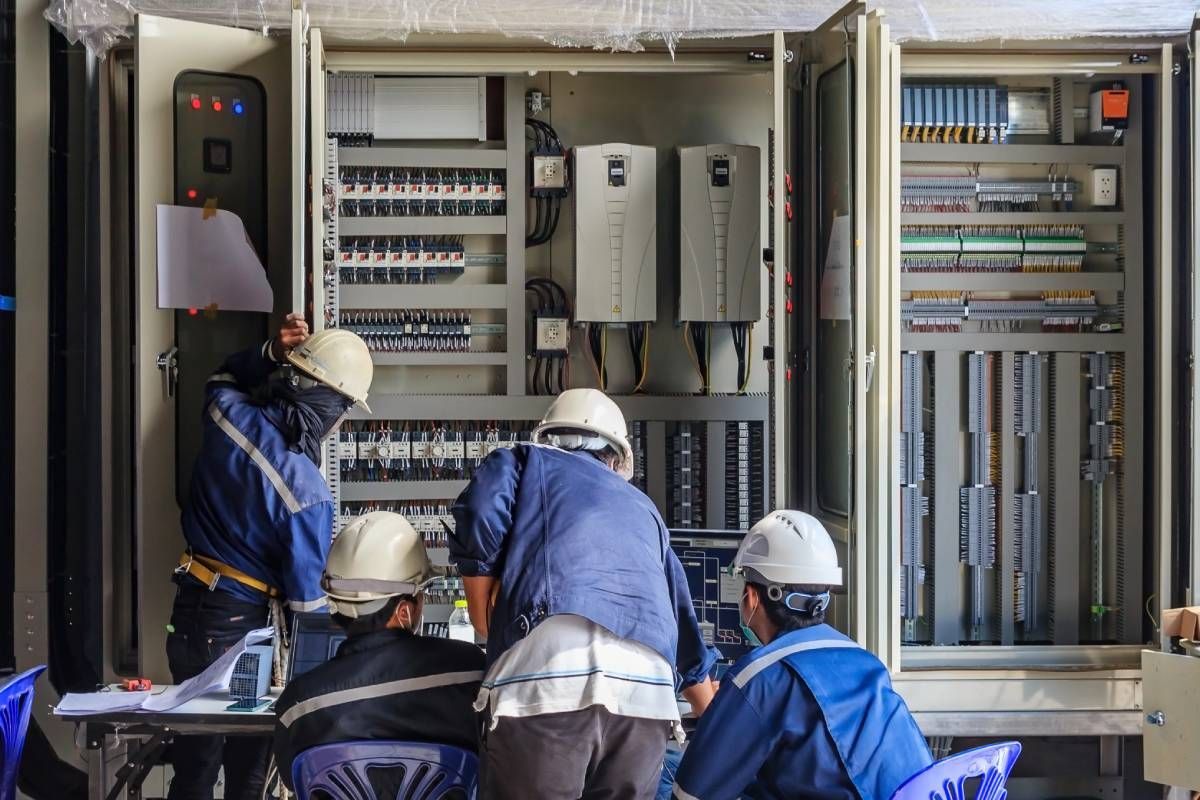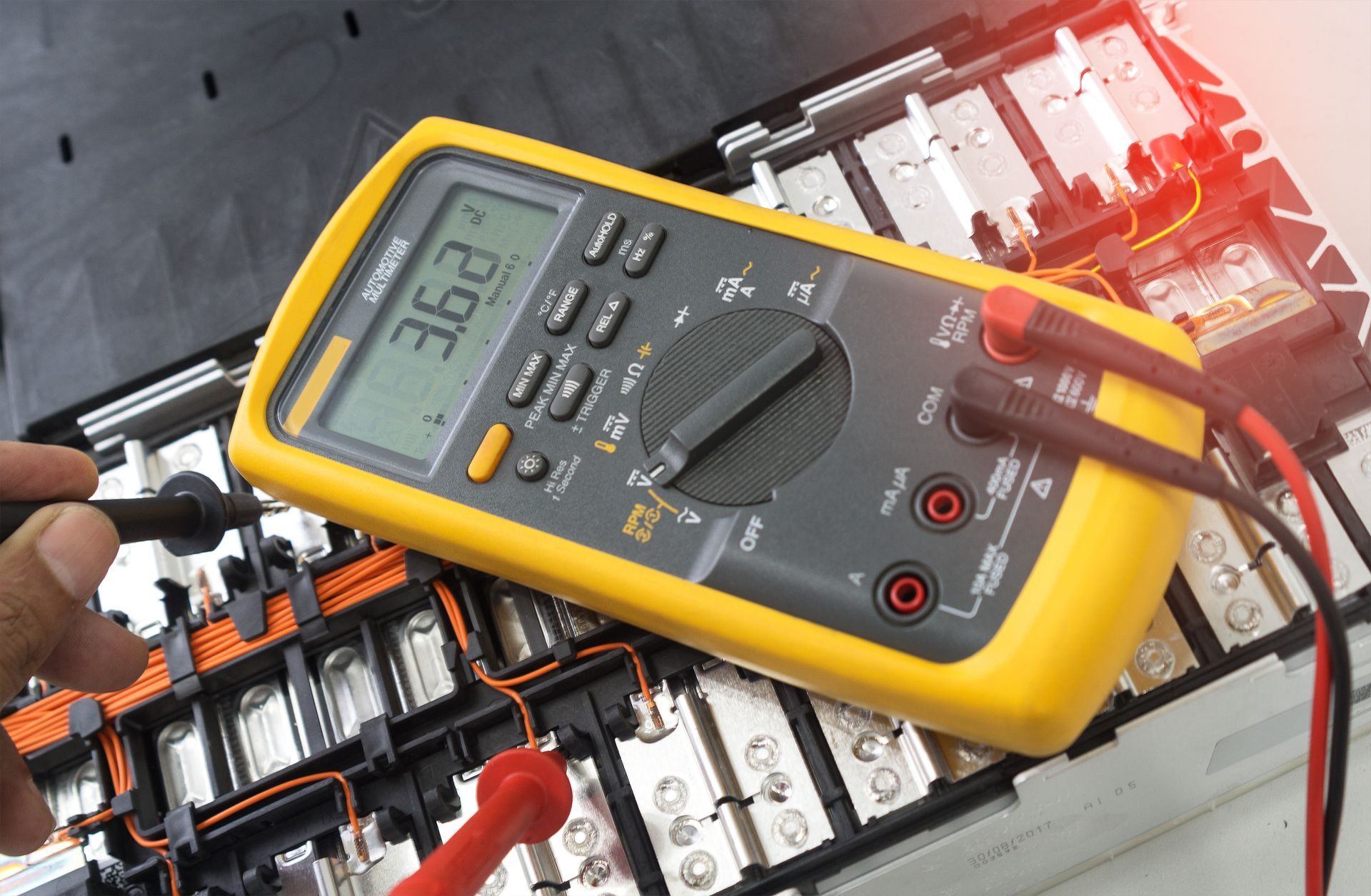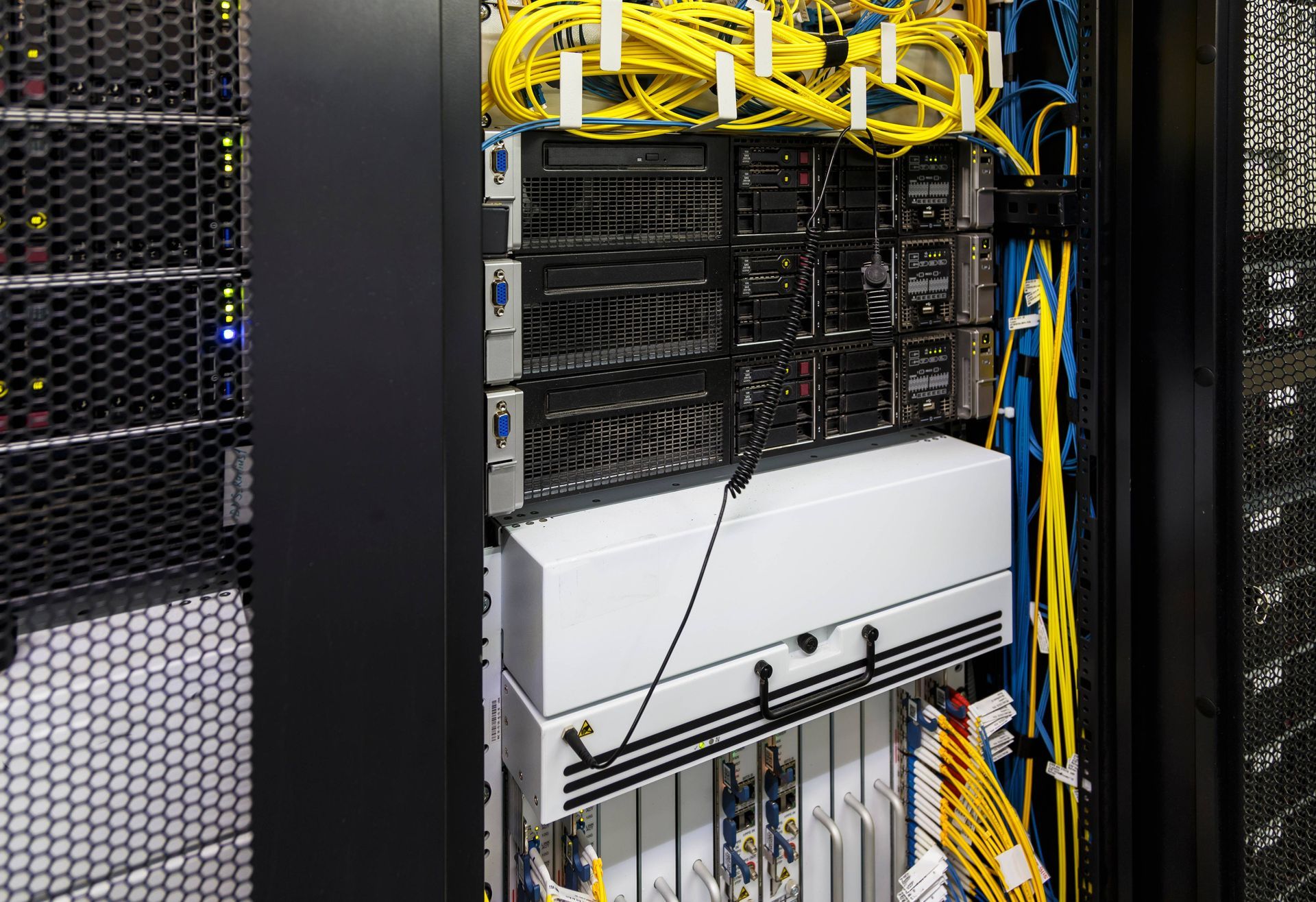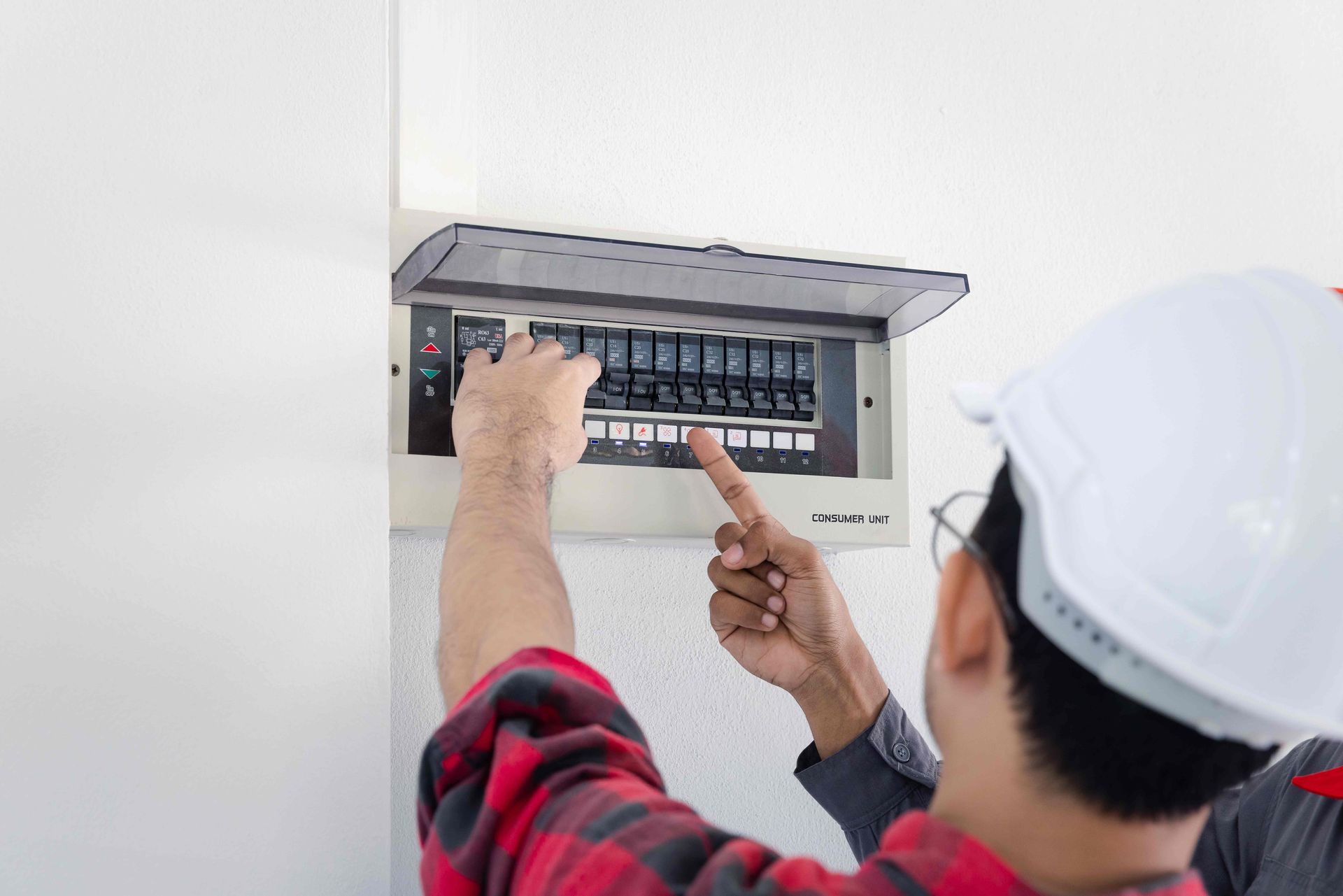What It’s Like to Work as an Industrial Electrician
Industrial electricians share core skills similar to those of other electricians, like understanding blueprints and safety protocols. However, the work days and environments can differ significantly from those of electricians specializing in commercial or residential work.

Becoming an Industrial Electrician
While the specifics of becoming an industrial electrician can vary between cities and states, such as the type of license to obtain, there are a few universal steps. Many programs require you to complete your high school education or earn an equivalent, like a GED. Some attend two-year programs at technical or community colleges, while others pursue an apprenticeship.
An apprenticeship typically takes four years and combines classroom instruction with hands-on training. During your apprenticeship, you’ll receive guidance from experienced industrial electricians. Other requirements for this position include experience using different hand tools and physical ability and strength.
Duties of an Industrial Electrician
Industrial electricians maintain and repair various electrical systems, including micro-currents and high-voltage components. As an industrial electrician, it’s vital you know how to do the following:
- Read technical drawings and blueprints.
- Install and test wiring and other electrical components during the construction phase.
- Upgrade existing industrial electrical systems.
- Troubleshoot, diagnose, and repair problems in industrial electric systems and equipment.
- Develop plans for wiring in new structures.
- Manage virtual logs or reports for updates and repairs on systems and equipment.
- Study the latest electrical codes and industry tools.
Work Environment for Industrial Electricians
Industrial electricians do most of their work in large, loud, and busy plants and manufacturing facilities. You must be able to stand for long periods and lift heavy objects. This role requires other physical demands, like bending, crouching, and spending time in small spaces. Adaptability to new situations and environments is crucial to your success as an industrial electrician.
Job Outlook for Industrial Electricians
Electricians are among the many professionals whose work cannot be replicated by machinery, making this position essential. The U.S. Bureau of Labor Statistics predicts industrial electrician jobs will grow at twice the pace of the projected average of all occupations over the next several years, while the salary may vary based on education, location, and employer.
Is an Industrial Electrician Career Right for You?
If you have excellent problem-solving, communication, and time management skills, a career as an industrial electrician may be a good fit. You must be willing to further your knowledge and skills with continuing education to stay on top of industry changes and be able to work independently or as part of a team.
Industrial Electrician Jobs Near Lexington, Kentucky
Since 1976, Walker Electric has been building a reputation for providing exceptional service. We offer various services, including electrical installations, electrical design-build, and industrial service work. Central Kentucky residents can also rely on us for 24/7 emergency service.
With the demand for electricians rising, Walker Electric is always looking to expand our team with people who are driven to succeed and ready to learn. Call us at (859)-252-2892 to discuss industrial electrician opportunities. You can apply online or bring in a filled-out job application to our office, located at 2308 Frankfort Court in Lexington, Kentucky. We proudly serve Fayette County, Frankfort, Richmond, Georgetown, and surrounding counties.










